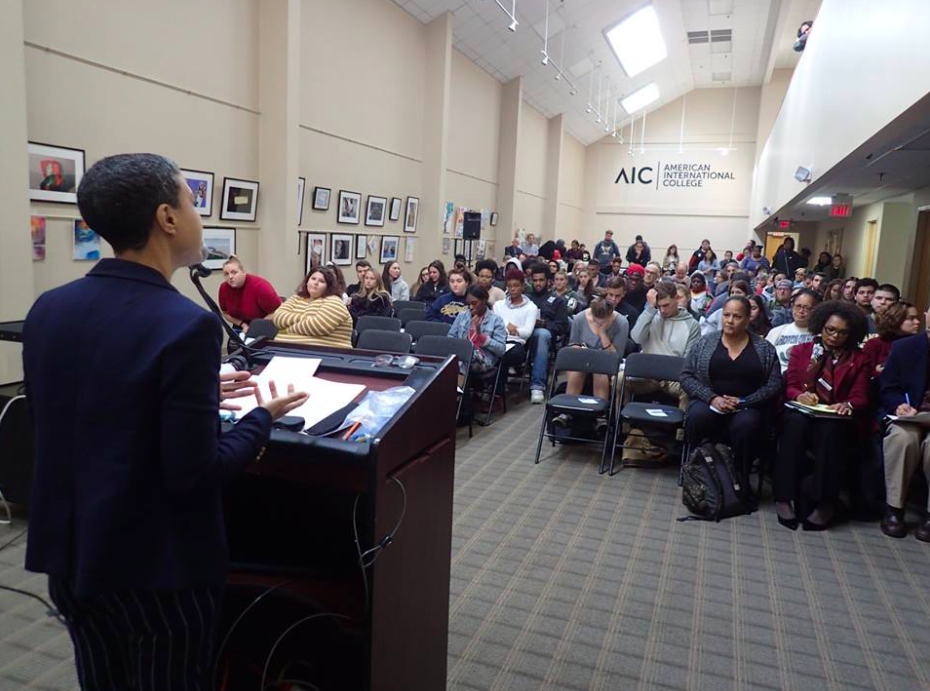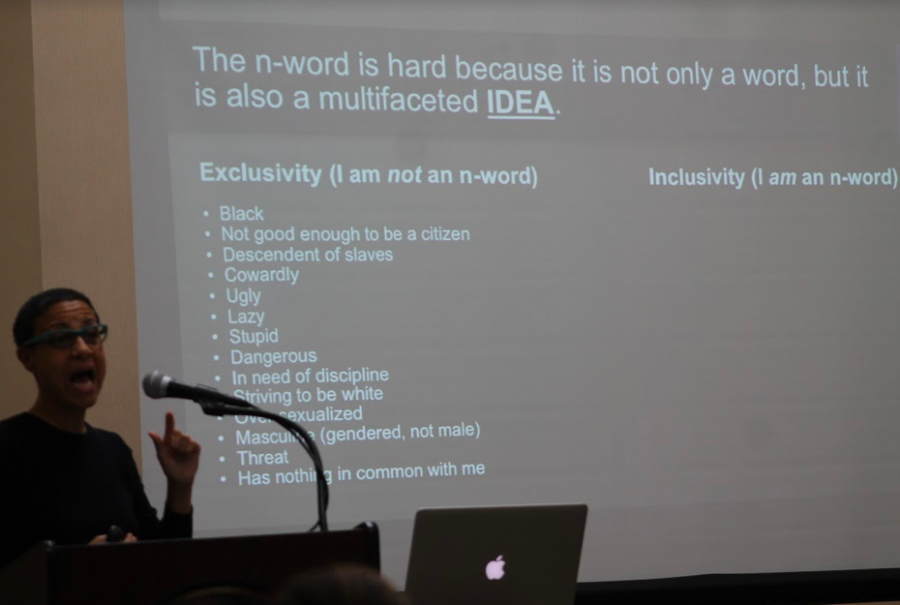The N-Word: History, Race, and the College Classroom
October 20, 2018
The ‘N-Word’ is something many talk about every day and everywhere ever since the word was created in the late 1700s.
People of color use it as a greeting or just even over use it in a wrong context.
Then there are the white people who are too scared to say the N-Word or just know that they are not allowed to say it, or the consequences will likely be harsh.
That’s why speaker Dr. Elizabeth Stordeur Pryor paid a recent visit to AIC to speak with students, staff and faculty in the West Wing on Tuesday October 16.
Dr. Pryor is a history professor at Smith, and has been researching the use of the N-Word in recent years. She is the author of an essay called “The Etymology of [the n-word]: Resistance, Language, and the Politics of Freedom in the Antebellum North,” and for that won the Ralph D. Gray Prize for the best article of 2016 in the Journal of the Early Republic.
Her talk in the West Wing was sponsored by the AIC Lecture and Forum Series, and drew a large crowd.
While she was speaking, she was calm and did not say the full N-Word, asking the audience to do the same.
“There was a massive incident last summer when Kendrick Lamar invited a blind less member onto the stage and she sang along the n-word with him and then he stopped. All people said he set her up that it’s not fair, she just singing the lyrics of the song,” said Pryor.
A white girl teen was invited onto the stage where Kendrick asked her to sing one of his songs M.A.D.D. City. That song has many uses of the N-Word. So, this girl who is obviously a fan and has probably a million emotions going through her head, isn’t probably thinking about the N-Word while singing. But her use of the word caused controversy nonetheless.
Kendrick stopped her and said “Don’t say the word,” then they restart the song again and she does not have the same fun attitude that she had coming up. She then has a scared second guessing herself attitude. The video is on YouTube to watch.
Pryor talked about that example, and others relating to college classrooms.

“There is confusion for white and black people in the way we use the word,” said Pryor. “Sometimes the word means something completely different.”
The students that Pryor teaches at Smith College, where she has seen white students turn to students of color when the topic comes up, “as if they have some special knowledge of the N-Word” she noted.
That is something that can be seen in classes at AIC such as African literature or history classes, When the N-Word comes up in a reading, or a movie, students can feel the emotion of the class and the discomfort, especially among white students.
No one wants to say something wrong or bad to offend or hurt someone’s feelings. But then it comes to discussion and no one is comfortable.
The speaker Prof. Pryor had asked a question for everyone in the West Wing to think about and write down their answer.
“Why is talking about and/or teaching the N-Word hard?” was the question.
Which was a great question to answer and people took two to three minutes to think, discuss, and answer.
AIC students asked that their names not be used, lest they offend in talking about this sensitive topic. What some people had to say was:
“It’s important for us as teachers to teach the N-Word no matter black or white because we need to be comfortable with our teachings.” said one audience member.
“Talking about the N-Word is so hard for people because everyone is stuck in the past and can’t move out of it. Honestly, the new generation really doesn’t even use the n-word the same as they did in the past. People use the N-Word to be cool, say what’s up, aggressively when they are mad, or just stupidly in a short sentence. The N-Word now is just not used properly now and days and it’s really like a filler word,” said another.
“The N-Word is something that needs to be spoken about like Prof. Pryor, but it’s hard because no one wants to come to an agreement on something that we can all relate to,” said another.
Even when asking people that were white, they want to remain anonymous, but they should be free to speak their minds.
One wonders if one day the N-Word won’t be such a big deal.



